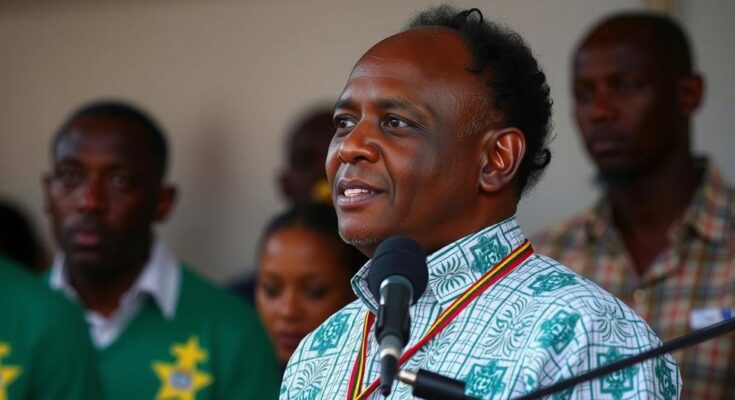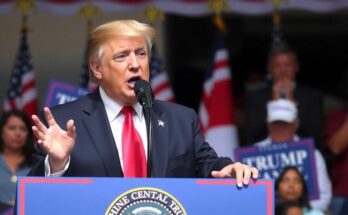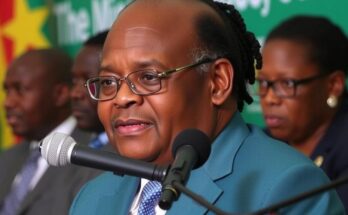Mozambique has experienced severe unrest post-October’s disputed elections, resulting in at least 90 deaths and 3,500 arrests due to clashes between anti-government protesters and security forces. Renewed protests have erupted since Wednesday, particularly in Nampula, leading to additional fatalities. The Frelimo party’s controversial election win is being contested by opposition leaders, heightening tensions ahead of the upcoming presidential inauguration.
In Mozambique, violent clashes ignited by the disputed presidential elections in October have resulted in at least 90 fatalities, as reported by the civil society group Plataforma Decide. The unrest has persisted since the elections held on October 9, in which the ruling Frelimo party claimed victory, a result that opposition parties have denounced as fraudulent. Between October 21 and December 5, nearly 3,500 individuals were detained amid the turmoil, which escalated following renewed protests that commenced on Wednesday, leading to further casualties, including at least five deaths confirmed by police. The unrest particularly intensified in the northern city of Nampula, where armed resistance by demonstrators was met with lethal force. The Constitutional Council is expected to confirm the election results before the inauguration of Daniel Chapo, the Frelimo candidate, on January 12, amidst stark disagreements between political factions regarding the vote count.
The ongoing violence in Mozambique can be traced back to the results of the October 9 presidential elections, which were conducted under a climate of tension and allegations of electoral fraud. The Frelimo party, which has governed Mozambique since its independence in 1975, secured a controversial victory, affirming their hold on power despite opposition claims of major electoral discrepancies. Figures emerging from various parties indicate a significant divergence in vote tallying, particularly highlighted by Venancio Mondlane’s assertion regarding the actual count of votes, which contradict the official figures. This political discord has incited a wave of unrest, illustrating deep-seated fractures within the nation’s political landscape.
The violent events in Mozambique reflect a disturbing pattern of civil unrest fueled by contentious electoral outcomes and political rivalries. The confirmatory role of the Constitutional Council for the election results adds urgency to an already precarious situation. As the nation heads towards the inauguration of a new president, the continued protests indicate that popular discontent is unlikely to subside, prompting questions about the stability of Mozambique’s political climate moving forward.
Original Source: www.cbs19news.com




